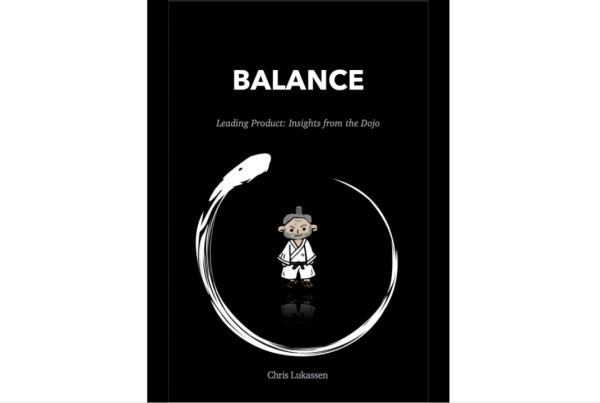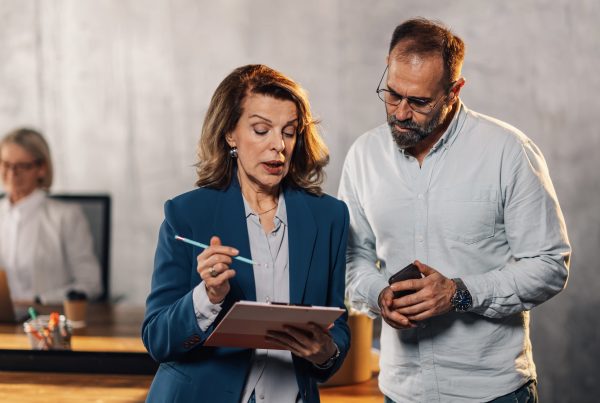You experience something important in your professional context: A successful negotiation, perhaps, or bringing on board a brand-new client. Maybe you were trying to help resolve a workplace conflict and things went very wrong. Or you had hired a promising new member to your team and the person left after just a few months. Perhaps you were involved with launching a new product and things unfolded in a way that exceeded your expectations.
How do you make sure you learn from what you experience in the action of doing your work? Do you take the time to pause and reflect on what happened? Would you be able to explain why things worked out the way they did? Perhaps not with scientific accuracy, but at least to the point of having a working hypothesis for what happened – one that you could carry into future situations as a foundation for personal and professional success?
Many people reading these lines likely think of themselves as knowledge workers. But what does it actually involve, for someone spending their days in the thick of things, to produce and acquire practical knowledge?
Reviewing the work of learning theorist Donald Schön, Chiapello and Bousbaci write that “To transition from experience to knowledge, one needs to reflect upon their experience. […] This reflectivity is what separates intelligent human action from simple human action, or trial and error.” (Chiapello and Bousbaci, 2022, p. 10. My emphasis.)
“Nowadays” write the authors, “Schön’s work on reflective practice is admittedly related to Dewey’s pragmatist inquiry.” (Chiapello and Bousbaci, 2022, p. 2) Lets go back, then, and examine some of Dewey’s key ideas, as summarized by Caroline Rodgers:
“1. Reflection is a meaning-making process that moves a learner from one experience into the next with deeper understanding of its relationships with and connections to other experiences and ideas. It is the thread that makes continuity of learning possible, and ensures the progress of the individual and, ultimately, society. It is a means to essentially moral ends.
2. Reflection is a systematic, rigorous, disciplined way of thinking, with its roots in scientific inquiry.
3. Reflection needs to happen in community, in interaction with others.
4. Reflection requires attitudes that value the personal and intellectual growth of oneself and of others.” (Rodgers, 2002, p. 845)
I have seen many color-by-numbers attempts at extracting learnings from situations, rarely very engaging and successful: a mandatory post-mortem; a standard deck to populate and send to some designated person. Unfortunately, a perfunctory process is no substitute for earnest reflection of the kind described above.
It is indeed possible to implement true reflection in your work, but it requires time, commitment, and an appropriate state of mind. It has to come from within, because it can’t be effectively mandated. And in a professional context, it will be much easier to sustain if it’s part of the organization’s culture – valued and supported from top to bottom, including the necessity to make some appropriate time for it.
My own approach, for many years, has followed a pretty well-defined process: I start from a real-life situation (usually at work or in the dojo), which I examine for insights and learnings. To help me think through the situation, I draw on readings, other experiences, and conversations with others. I try to find useful connections, and while many turn out to be dead ends, once in a while, some kernel makes it through the process and results in a useful insight. Taking the time to organize my thoughts in writing, in a way that can be consumed by others, forces me to refine my thinking. It’s also a good way to keep myself honest: It allows me to put my learnings out there for others to examine and react to; a way to pressure-test the results of my reflections.
The approach I just described has benefited me a lot over the years, and I often go back to the learnings I have put down in writing. You may approach things differently and your way doesn’t have to look like my way. What matters is that you find a way – one that works for you. But who has time for this, you might ask? People everywhere are so busy. My answer would be this: if reflection is indeed the key to teasing out valuable learnings from experiences, can anyone afford to not make the time?
So how might you get this going? By starting small, as with many other things. The first step is to set aside some time to think and reflect – to make it a real priority. Bringing together small groups of similarly motivated people, to reflect together on relevant experiences, is one avenue you may also want to consider. Those can take the form of peer coaching triangles or dyads, but there are many other ways to help people move up to the balcony to observe – and reflect on – what’s happening down on the dance floor.
The fact that you have taken the time to read this article offers one such opportunity, and I’m curious to see if we can make something of it, here and now: how do you personally leverage reflection to help turn experience into useful knowledge?
Chiapello, L., and Bousbaci, R. (2022). It’s complicated: Dewey, Schön and reflection-in-action, in Lockton, D., Lenzi, S., Hekkert, P., Oak, A., Sádaba, J., Lloyd, P. (eds.), DRS2022: Bilbao, 25 June – 3 July, Bilbao, Spain. https://doi.org/10.21606/drs.2022.349
Rodgers, C. (2002). Defining Reflection Another Look at John Dewey and Reflective Thinking. Teachers College Record, 104, 842-866. https://doi.org/10.1111/1467-9620.00181



